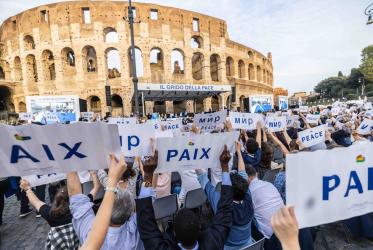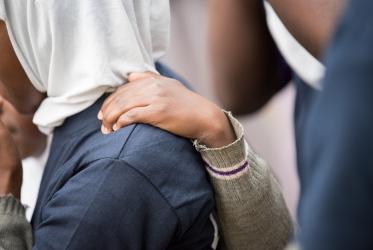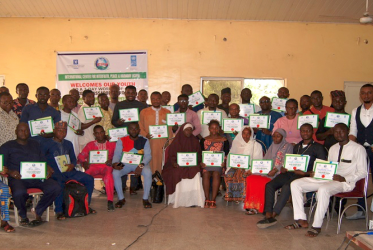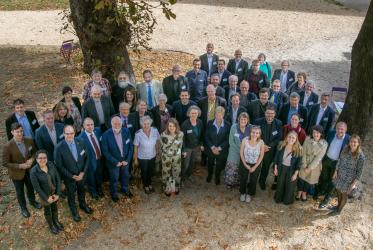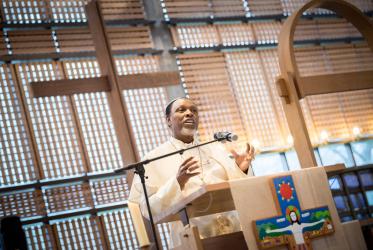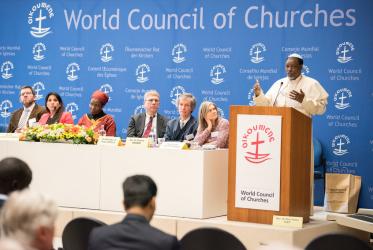Displaying 1 - 20 of 40
Rethinking Ecological Relationships in the Anthropocene era
11 - 13 February 2021
WCC well-represented in Religions for Peace leadership
07 October 2019
Romani people seek “lives of decency, dignity, and justice”
27 September 2018
Paving the way for ecumenical studies, learning English in Bossey
24 September 2018
Walking together against hatred and violence
26 February 2018
In Nigeria, WCC workshops focus on human rights
04 December 2017
What does ‘prudence’ mean for dialogue and peace-building?
16 November 2016

